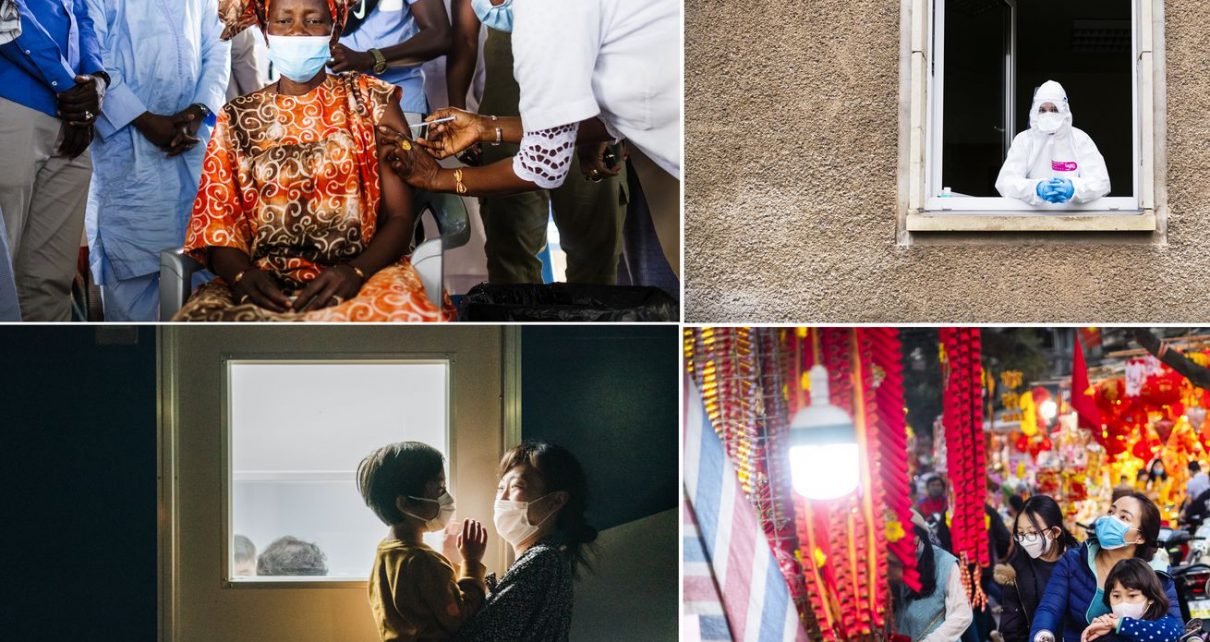
Vox explores the successes — and setbacks — in six nations as they fought Covid-19.
Before last March, the United States was considered better prepared than any country in the world to contain an infectious disease outbreak.
Then came the novel coronavirus. The US response was slow, disorganized, and ineffective: The richest nation on Earth endured the most cases and deaths anywhere in the world, and it fared poorly even when adjusting for population.
Chronic underinvestment in public health left the US struggling to set up a system to test for Covid-19, trace infected people’s contacts, and isolate those who were exposed. Government leaders resisted accepting the seriousness of the threat and failed to effectively communicate with the public. Hospitals in major hot spots scrambled to keep beds available. There were some successes: The US helped produce vaccines that should eventually help end the pandemic, and the federal government ultimately outspent other nations as it tried to stimulate the economy. But the public health response was a catastrophic failure.
Around the world, other nations went further in their attempts to limit the pandemic’s damage. They applied lessons from their pasts and adjusted in the moment. Some of the differences in death and case rates are likely the result of luck or immutable characteristics like geography. Every approach came with trade-offs and caveats. But around the world, other governments successfully learned and adapted as they threw their resources at the problem of a deadly disease.
In the Pandemic Playbook series, Vox explores the successes — and setbacks — of pandemic strategies in six nations, talking to the leaders who conceived them, the workers who executed them, and the citizens they affected. Our reporting is supported by a grant from the nonprofit Commonwealth Fund.
South Korea’s Covid-19 success story started with failure
/cdn.vox-cdn.com/uploads/chorus_asset/file/22444927/Jun_Michael_Park_Korea_Covid_19_012.jpg) Jun Michael Park for Vox
Jun Michael Park for Vox Scarred by its failures during the 2015 MERS outbreak, the South Korean government approved a package of public health reforms that proved crucial in the coronavirus outbreak. The program for testing, tracing, and isolating patients meant South Korea flattened the curve of its Covid-19 outbreak much quicker than most Western countries — but it also raised difficult questions about privacy.
By Dylan Scott and Jun Michael Park
Germany (coming April 21)
/cdn.vox-cdn.com/uploads/chorus_asset/file/22452768/202102_Germany_through_the_pandemic_Jacobia_Dahm_53.jpg) Jacobia Dahm for Vox
Jacobia Dahm for Vox Germany went from a Covid-19 success story to a cautionary tale. Political leaders, starting with Chancellor Angela Merkel, developed a message to clearly communicate to the public the nature of the coronavirus threat and what would be necessary to contain it. Local health officials succeeded in conveying how masks and social distancing would slow the virus’s spread, and, by the summer of 2020, the outbreak in Germany looked well managed compared to other countries in Europe or the US. But as the pandemic persisted, German resolve faltered.
By German Lopez
Vietnam (coming April 23)
/cdn.vox-cdn.com/uploads/chorus_asset/file/22444957/LinhPham_Vox_DSCF6794.jpg) Linh Pham for Vox
Linh Pham for Vox Vietnam didn’t hesitate when the dangers of the mysterious pneumonia in China were becoming clear: The country shut its borders. When cases did pop up inside the country, officials restricted internal travel too. Before the pandemic, the expert consensus was that travel restrictions were punitive and ineffective. But the minuscule number of coronavirus cases in Vietnam is one reason the conventional wisdom about pandemic border closures has turned upside down.
By Julia Belluz
United Kingdom (coming April 26)
/cdn.vox-cdn.com/uploads/chorus_asset/file/22444962/MartinLandray_PeterHorby_079.jpg) Alicia Canter for Vox
Alicia Canter for Vox As the Covid-19 outbreak accelerated, two British researchers came together to create the UK’s Recovery Trial, a massive program enrolling thousands of patients across hundreds of hospitals across the country. They hunted for treatments that would improve outcomes for patients infected with the virus, hoping to save lives in the time before a vaccine was widely available — and succeeded.
By Dylan Scott
Senegal (coming April 28)
/cdn.vox-cdn.com/uploads/chorus_asset/file/22452771/APRIL_2021_SENEGAL_COVID_RICCI_SHRYOCK_26.jpg) Ricci Shryock for Vox
Ricci Shryock for Vox Senegal started the pandemic with fewer resources than wealthy countries. A wave of Covid-19 cases could quickly overwhelm doctors and hospitals. The country drew on its experience with Ebola — and its robust network of local go-betweens — to isolate patients and spread the word on public health. But especially because the wait for a vaccine will likely be longer in Senegal, keeping community buy-in was crucial and challenging.
By Jen Kirby
United States (coming April 30)
/cdn.vox-cdn.com/uploads/chorus_asset/file/22452813/GettyImages_1306368138.jpg) Tasos Katopodis/Getty Images
Tasos Katopodis/Getty Images Covid-19 was, for most countries, a dual crisis: the public health challenge posed by the pandemic itself, and the economic crisis brought on by the spreading pathogen and the measures undertaken to fight it. The US faltered badly on the former, botching its response to the spread of the virus and costing lives. But the way the country ultimately handled the economic crisis, particularly for those in need, was another story.
By Dylan Matthews
CREDITS
Reporters: Dylan Scott, German Lopez, Julia Belluz, Jen Kirby, Dylan Matthews
Additional reporting by Jun Michael Park, Thuy Do, Giap Nguyen
Photographers: Jun Michael Park, Jacobia Dahm, Ricci Shryock, Ina Makosi, Alicia Canter, Linh Pham
Editors: Libby Nelson, Elbert Ventura, Eliza Barclay, Jenn Williams
Visuals editor: Kainaz Amaria
Graphics: Christina Animashaun
Copy editors: Tanya Pai, Tim Williams
Engagement: Agnes Mazur, Kaylah Jackson
Communications: Jill Pike
Fact-checkers: Becca Laurie, Matt Giles
This project was supported by the Commonwealth Fund, a national, private foundation based in New York City that supports independent research on health care issues and makes grants to improve health care practice and policy.





